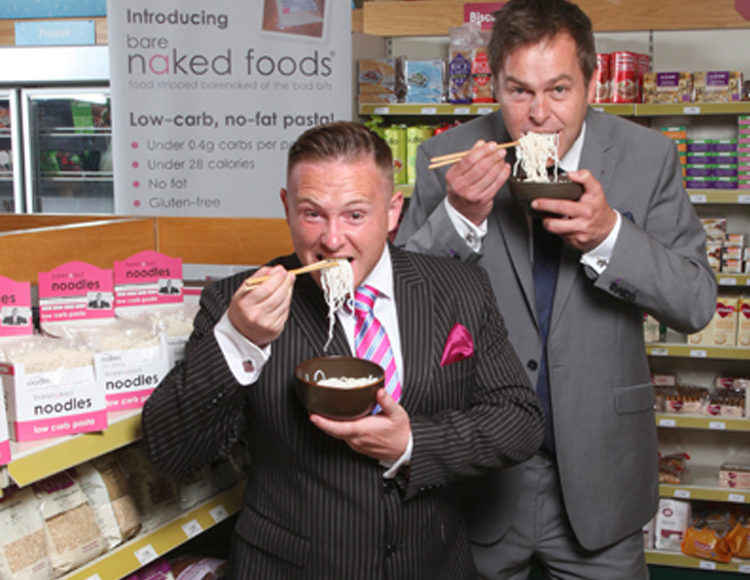They are the brave foodie entrepreneurs who’ve faced up to possibly the most daunting business challenge of all – the fiery panel of investors on BBC TV show Dragons' Den. Each of these products that hoped to inspire an investment from a wealthy Dragon is licensed to display one of our Vegetarian Society Approved trademarks. So how did these intrepid veggie ventures fare – and is an investment from the Dragons crucial for future success?
Oppo Ice Cream
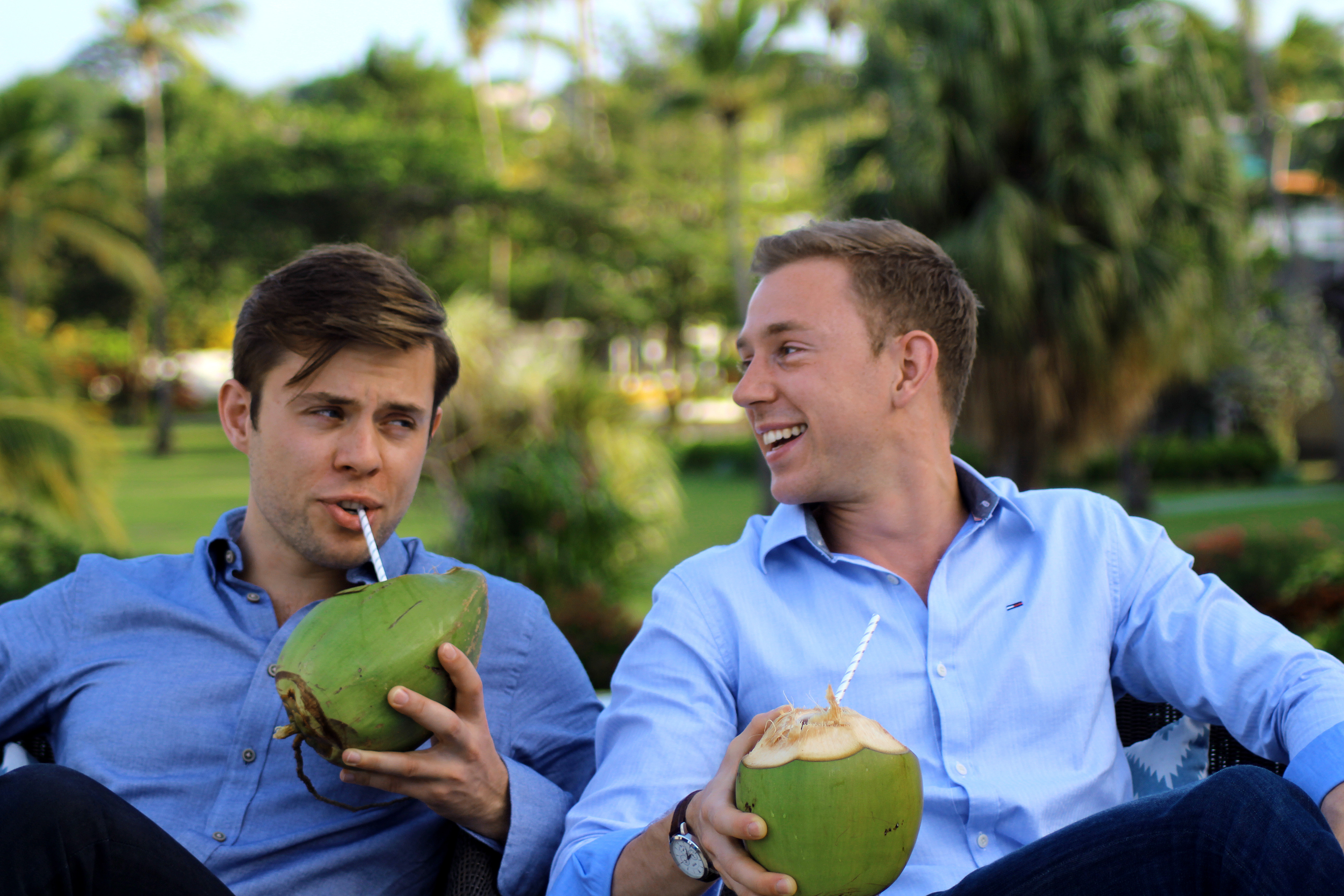
For brothers Harry and Charlie Thuillier, appearing on Dragons’ Den dished up the sweet taste of success. Even without the backing of the Dragons, they walked away smiling with a whole legion of new customers – and world tennis champion Andy Murray as an investor.
“The BBC must have asked us to go on the show around six times,” admitted Harry, 31. “We always said no, as we were already stocked in hundreds of Waitrose stores and didn’t need their money. But then we thought, more than three million people will be watching – we can’t buy that kind of advertising!”
But the Dragons felt the ice cream had an ‘after-taste’. Harry was perplexed. “I do wonder whether our mini-freezer containing the samples, which we had to leave at the BBC ahead of filming, was
accidentally switched off for a while.”
Their exotic products – which include Madagascan vanilla flavoured with African fruit baobab, and salted caramel with Peruvian lucuma, which gives it a maple flavour, were a big hit with viewers. “Our sales increased threefold overnight after the show was aired, and Waitrose ran out of stock. We were the 15th most searched term on Google UK that night – after Rod Stewart and a big football match.”
Sales this year are forecast to more than double to beyond £1million. The brothers are, however, still keeping a close eye on their margins. “We haven’t met Andy Murray, but his people did ask us for some samples. We told them there was a Waitrose not far from his house, and he could buy some himself!”
Barenaked Foods
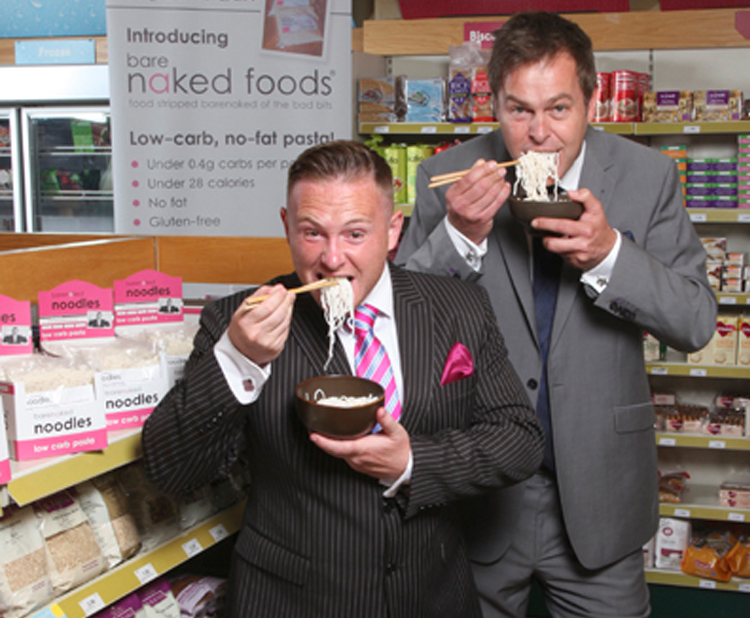
Ross Mendham broke down in tears during his pitch and thought all was lost – before walking away with an investment which would change his life. Ross was a fitness model and a member of the a Chippendales-style male dance group, Dreamboys, when he realised there were few low-carb, low-calorie noodle and pasta options available on the UK market. He researched a Japanese brand, made from gluten-free konjac flour derived from the elephant yam, created his own version and approached Dragons’ Den for a lucrative investment. But he nearly didn’t appear – just two weeks before filming, his wife suffered her third miscarriage.
“It was a particularly devastating time,” Ross admits. “But she said, ‘This could change our lives. You have to do it.’” That pressure was nearly too much. A hotplate to cook the noodles on set had been left cold. And, when questioned about his family, he left the set in tears. But Dragon, Peter Jones, had seen something worth investing in in Ross.
“Getting that money was like winning the lottery. An unbelievable moment – and I thought I’d lost it. Do I think the hotplate was left cold deliberately to throw me? Well, it made good TV.” The company is now worth in excess of £2.5million and sells 24,000 packets a week – 100 times what he was selling before Dragon’s Den. He is constantly in touch with Peter and his investment director, who are “very hands on”. Sainsbury’s has just rolled out the noodles across all 800 of their stores.
“We were renting a house where we had a few thousand noodles in the garage which we’d label up ourselves and couldn’t afford the heating. Now we’ve bought a five-bedroom property. And the best thing is we have a three-yearold son, Oliver. Life is amazing – it’s like a fairytale.”
Howdah Snacks
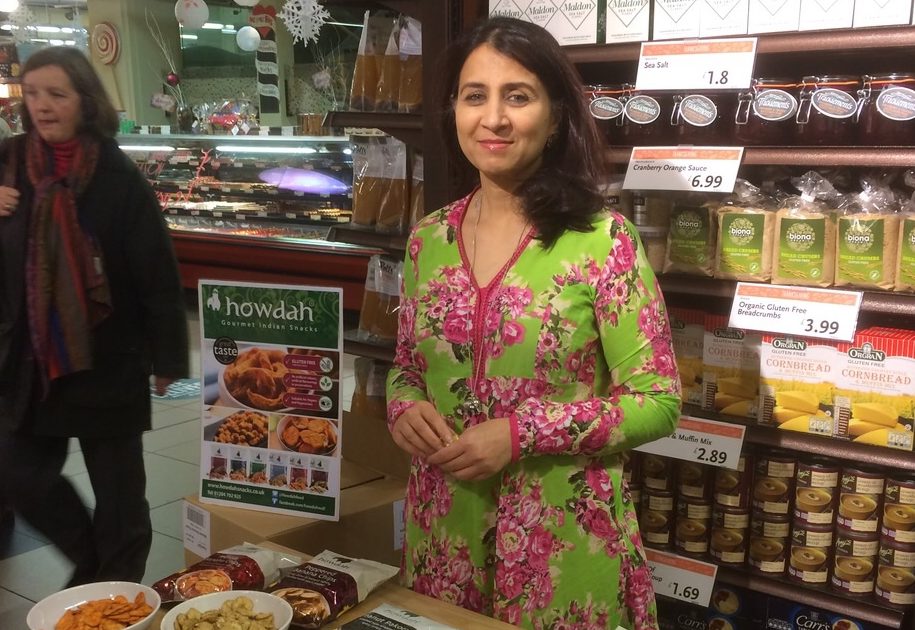
The hard-to-please Dragons loved Falu’s aromatic Indian snacks, bursting with authentic flavours sourced from the subcontinent.
“They were about recreating memories for me,” she said. “I came to Manchester in 1988 and missed those Indian flavours, so would always bring packets of spices and snacks back with me whenever I visited. I knew British people loved curry, but I wanted to show them that Indian snacks are so much more than Bombay mix – which doesn’t even exist in India.”
The gluten-free products, including onion bhajis, peanut pakora, Bombay puri and Bakarawdi bites, were stocked in Harrods and sold in fine food and farm shops. A Spanish supermarket giant was also keen to sell them in stores throughout Europe. But the Dragons thought they were ‘too niche’, and claimed there wasn’t enough footfall in supermarket world food aisles. Falu disagrees: “Customers are increasingly interested in more exotic, healthy and gluten-free products. We’re not targeting the crisp buyer, but snackers who want something different. Nachos were launched in the 1990s when no-one knew what they were; popcorn also used to be niche.”
The programme did boost online sales and increased their social media followers. And despite the Dragons’ comments, Falu bagged a contract with two supermarkets to supply her snacks.
“It was so nerve wracking being there, but I learned so much – I feel like I can now do anything.”
The company is now concentrating on expanding its reach, developing its flavours and pushing its #Howdah1for1 campaign, which gives a meal to a child in India for every bag sold. Falu says she ‘wouldn’t change a thing’ about her time on the Den – and adds: “Looking at our brand loyalty, new customers and everything we’ve achieved since the show aired hints that they’ve missed out big time.”
The Raw Chocolate Company
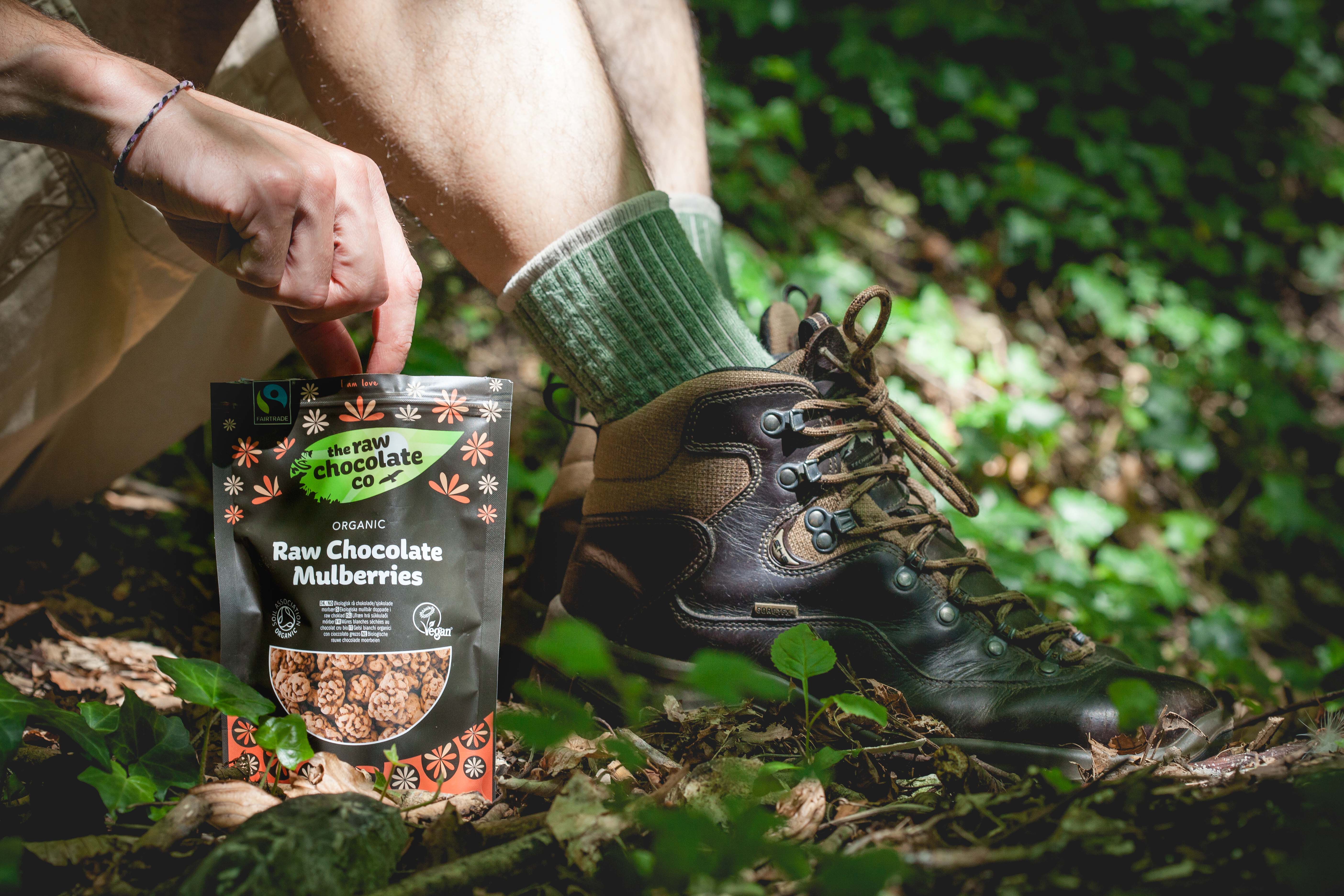
Most companies approach the fiery Dragons for the lucrative cash, priceless exposure and the impressive connections of the multi-millionaire investors. But laid-back Linus is not a typical entrepreneur.
“I didn’t need the money,” he shrugs. “But I’m not very good at public speaking, so I did it for the psychological challenge. I studied every previous episode and watched what the successful people did. Now I’m really good at it. I certainly get more invitations to speak publicly now.”
Linus ‘made up’ the £72,000 investment figure based on his first chocolate bar – which had 72% cacao content. Peter Jones exclaimed that Linus’s product, made from raw cacao beans and coconut blossom sugar, was ‘the best chocolate I’ve ever tasted in 10 years of making Dragons’ Den’. The show generated an astonishing 1.4 million hits on the company’s website while the programme aired, and a months’ worth of orders was placed in just two hours.
But the deal with Deborah Meaden never happened – because of a technicality linked to the company’s branding. “Only around 10% of the successful deals you see on television end up happening in reality,” Linus explained.
So was he disappointed? “It took me a good few minutes to get over it,” he smiles. “I’m sure she would have brought valuable business skills and connections. But she may also have brought different approaches to life and business that I may not have agreed with.”
Overall, the show has not had a significant impact on the company’s sales, which are steady at £1.4million. “At one point I thought I’d like to sell the chocolate on the moon – but I’ve abandoned that idea now. I don’t want to take over the world, but I’d like to be the leading raw chocolate brand. We’re looking for a new shareholder, someone with strategic business skills to grow the brand, which I don’t have. I’d love to get a listing at Waitrose.
“If I could do my time on Dragons’ Den again, I’d certainly consider Touker’s offer more seriously – I liked him.”
Secret Sausages
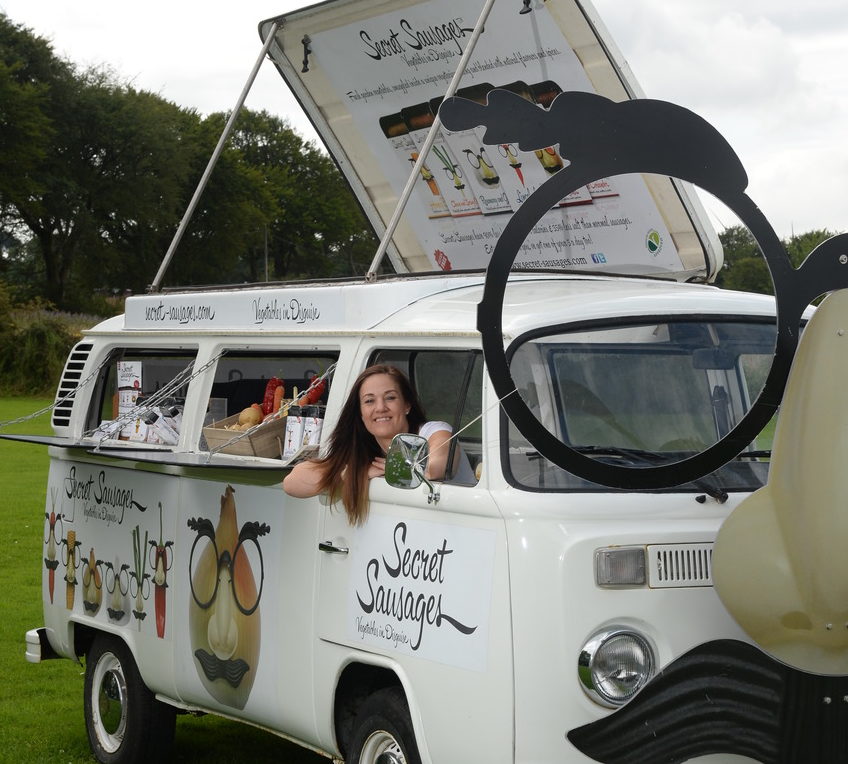
Few parents would describe their children as passionate vegetable consumers. So Rachel Wicklow came up with a canny solution – disguise the vegetables as a sausage. Secret Sausages was born with parents, and other vegetarians, firmly in mind.
Vegetarian Rachel, had struggled to find a veggie banger which didn’t mimic the texture of meat; her own research had found around 50% of vegetarians found such textures unappealing. There was, she found, a gap in the market. She created a series of sausages filled with garden veg and natural spices, contained within a ‘skin’ of rice and seaweed which crispened up once cooked.
It was researchers from Dragons’ Den who persuaded Rachel to appear on the show. But the Dragons were feisty that day. Rachel did her best to stand her ground, even when she was told “you’re like a bunny in headlights.”
“Peter Jones was, in retrospect, hilarious,” recalls Rachel. “He had this tirade about how could sausages be vegetarian and how ridiculous it all was. Some of the others just didn’t get the concept of hiding vegetables from children. There was also a delay between cooking and tasting the sausages, so they weren’t at their best.”
For Rachel, it was an ‘emotional rollercoaster’ and she admits the show left her bruised. But the overwhelming public support once it aired was enough to restore her confidence.
“I got no negative feedback – it was so reassuring. I’ve got a folder full of emails and tweets. That’s when I really believed in what I was doing.” Since then the recipes have been tweaked to remove allergens and ingredients like soya or palm oil, and all sausages will be vegan. There are also new flavours in the pipeline, to be launched in the autumn.
“I believe we have an incredibly strong brand and I’d love for a company to take it on and develop it”.

